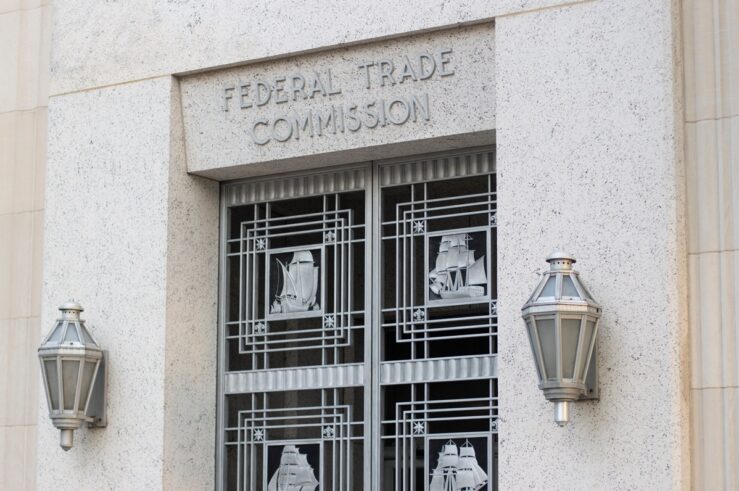
The business press generally describes the gig economy that has sprung up around digital platforms like Uber and TaskRabbit as a beneficial phenomenon, “a glass that is almost full.” The gig economy “is an economy that operates flexibly, involving the exchange of labor and resources through digital platforms that actively facilitate buyer and seller matching.”
From the perspective of businesses, major positive attributes of the gig economy include cost-effectiveness (minimizing costs and expenses); labor-force efficiencies (“directly matching the company to the freelancer”); and flexible output production (individualized work schedules and enhanced employee motivation). Workers also benefit through greater independence, enhanced work flexibility (including hours worked), and the ability to earn extra income.
While there are some disadvantages, as well, (worker-commitment questions, business-ethics issues, lack of worker benefits, limited coverage of personal expenses, and worker isolation), there is no question that the gig economy has contributed substantially to the growth and flexibility of the American economy—a major social good. Indeed, “[i]t is undeniable that the gig economy has become an integral part of the American workforce, a trend that has only been accelerated during the” COVID-19 pandemic.
In marked contrast, however, the Federal Trade Commission’s (FTC) Sept. 15 Policy Statement on Enforcement Related to Gig Work (“gig statement” or “statement”) is the story of a glass that is almost empty. The accompanying press release declaring “FTC to Crack Down on Companies Taking Advantage of Gig Workers” (since when is “taking advantage of workers” an antitrust or consumer-protection offense?) puts an entirely negative spin on the gig economy. And while the gig statement begins by describing the nature and large size of the gig economy, it does so in a dispassionate and bland tone. No mention is made of the substantial benefits for consumers, workers, and the overall economy stemming from gig work. Rather, the gig statement quickly adopts a critical perspective in describing the market for gig workers and then addressing gig-related FTC-enforcement priorities. What’s more, the statement deals in very broad generalities and eschews specifics, rendering it of no real use to gig businesses seeking practical guidance.
Most significantly, the gig statement suggests that the FTC should play a significant enforcement role in gig-industry labor questions that fall outside its statutory authority. As such, the statement is fatally flawed as a policy document. It provides no true guidance and should be substantially rewritten or withdrawn.
Gig Statement Analysis
The gig statement’s substantive analysis begins with a negative assessment of gig-firm conduct. It expresses concern that gig workers are being misclassified as independent contractors and are thus deprived “of critical rights [right to organize, overtime pay, health and safety protections] to which they are entitled under law.” Relatedly, gig workers are said to be “saddled with inordinate risks.” Gig firms also “may use transparent algorithms to capture more revenue from customer payments for workers’ services than customers or workers understand.”
Heaven forfend!
The solution offered by the gig statement is “scrutiny of promises gig platforms make, or information they fail to disclose, about the financial proposition of gig work.” No mention is made of how these promises supposedly made to workers about the financial ramifications of gig employment are related to the FTC’s statutory mission (which centers on unfair or deceptive acts or practices affecting consumers or unfair methods of competition).
The gig statement next complains that a “power imbalance” between gig companies and gig workers “may leave gig workers exposed to harms from unfair, deceptive, and anticompetitive practices and is likely to amplify such harms when they occur. “Power imbalance” along a vertical chain has not been a source of serious antitrust concern for decades (and even in the case of the Robinson-Patman Act, the U.S. Supreme Court most recently stressed, in 2005’s Volvo v. Reeder, that harm to interbrand competition is the key concern). “Power imbalances” between workers and employers bear no necessary relation to consumer welfare promotion, which the Supreme Court teaches is the raison d’etre of antitrust. Moreover, the FTC does not explain why unfair or deceptive conduct likely follows from the mere existence of substantial bargaining power. Such an unsupported assertion is not worthy of being included in a serious agency-policy document.
The gig statement then engages in more idle speculation about a supposed relationship between market concentration and the proliferation of unfair and deceptive practices across the gig economy. The statement claims, without any substantiation, that gig companies in concentrated platform markets will be incentivized to exert anticompetitive market power over gig workers, and thereby “suppress wages below competitive rates, reduce job quality, or impose onerous terms on gig workers.” Relatedly, “unfair and deceptive practices by one platform can proliferate across the labor market, creating a race to the bottom that participants in the gig economy, and especially gig workers, have little ability to avoid.” No empirical or theoretical support is advanced for any of these bald assertions, which give the strong impression that the commission plans to target gig-economy companies for enforcement actions without regard to the actual facts on the ground. (By contrast, the commission has in the past developed detailed factual records of competitive and/or consumer-protection problems in health care and other important industry sectors as a prelude to possible future investigations.)
The statement then launches into a description of the FTC’s gig-economy policy priorities. It notes first that “workers may be deprived of the protections of an employment relationship” when gig firms classify them as independent contractors, leading to firms’ “disclosing [of] pay and costs in an unfair and deceptive manner.” What’s more, the FTC “also recognizes that misleading claims [made to workers] about the costs and benefits of gig work can impair fair competition among companies in the gig economy and elsewhere.”
These extraordinary statements seem to be saying that the FTC plans to closely scrutinize gig-economy-labor contract negotiations, based on its distaste for independent contracting (which it believes should be supplanted by employer-employee relationships, a question of labor law, not FTC law). Nowhere is it explained where such a novel FTC exercise of authority comes from, nor how such FTC actions have any bearing on harms to consumer welfare. The FTC’s apparent desire to force employment relationships upon gig firms is far removed from harm to competition or unfair or deceptive practices directed at consumers. Without more of an explanation, one is left to conclude that the FTC is proposing to take actions that are far beyond its statutory remit.
The gig statement next tries to tie the FTC’s new gig program to violations of the FTC Act (“unsubstantiated claims”); the FTC’s Franchise Rule; and the FTC’s Business Opportunity Rule, violations of which “can trigger civil penalties.” The statement, however, lacks any sort of logical, coherent explanation of how the new enforcement program necessarily follows from these other sources of authority. While a few examples of rules-based enforcement actions that have some connection to certain terms of employment may be pointed to, such special cases are a far cry from any sort of general justification for turning the FTC into a labor-contracts regulator.
The statement then moves on to the alleged misuse of algorithmic tools dealing with gig-worker contracts and supervision that may lead to unlawful gig-worker oversight and termination. Once again, the connection of any of this to consumer-welfare harm (from a competition or consumer-protection perspective) is not made.
The statement further asserts that FTC Act consumer-protection violations may arise from “nonnegotiable” and other unfair contracts. In support of such a novel exercise of authority, however, the FTC cites supposedly analogous “unfair” clauses found in consumer contracts with individuals or small-business consumers. It is highly doubtful that these precedents support any FTC enforcement actions involving labor contracts.
Noncompete clauses with individuals are next on the gig statement’s agenda. It is claimed that “[n]on-compete provisions may undermine free and fair labor markets by restricting workers’ ability to obtain competitive offers for their services from existing companies, resulting in lower wages and degraded working conditions. These provisions may also raise barriers to entry for new companies.” The assertion, however, that such clauses may violate Section 1 of the Sherman Act or Section 5 of the FTC Act’s bar on unfair methods of competition, seems dubious, to say the least. Unless there is coordination among companies, these are essentially unilateral contracting practices that may have robust efficiency explanations. Making out these practices to be federal antitrust violations is bad law and bad policy; they are, in any event, subject to a wide variety of state laws.
Even more problematic is the FTC’s claim that a variety of standard (typically efficiency-seeking) contract limitations, such as nondisclosure agreements and liquidated damages clauses, “may be excessive or overbroad” and subject to FTC scrutiny. This preposterous assertion would make the FTC into a second-guesser of common labor contracts (a federal labor-contract regulator, if you will), a role for which it lacks authority and is entirely unsuited. Turning the FTC into a federal labor-contract regulator would impose unjustifiable uncertainty costs on business and chill a host of efficient arrangements. It is hard to take such a claim of power seriously, given its lack of any credible statutory basis.
The final section of the gig statement dealing with FTC enforcement (“Policing Unfair Methods of Competition That Harm Gig Workers”) is unobjectionable, but not particularly informative. It essentially states that the FTC’s black letter legal authority over anticompetitive conduct also extends to gig companies: the FTC has the authority to investigate and prosecute anticompetitive mergers; agreements among competitors to fix terms of employment; no-poach agreements; and acts of monopolization and attempted monopolization. (Tell us something we did not know!)
The fact that gig-company workers may be harmed by such arrangements is noted. The mere page and a half devoted to this legal summary, however, provides little practical guidance for gig companies as to how to avoid running afoul of the law. Antitrust policy statements may be excused if they provided less detailed guidance than antitrust guidelines, but it would be helpful if they did something more than provide a capsule summary of general American antitrust principles. The gig statement does not pass this simple test.
The gig statement closes with a few glittering generalities. Cooperation with other agencies is highlighted (for example, an information-sharing agreement with the National Labor Relations Board is described). The FTC describes an “Equity Action Plan” calling for a focus on how gig-economy antitrust and consumer-protection abuses harm underserved communities and low-wage workers.
The FTC finishes with a request for input from the public and from gig workers about abusive and potentially illegal gig-sector conduct. No mention is made of the fact that the FTC must, of course, conform itself to the statutory limitations on its jurisdiction in the gig sector, as in all other areas of the economy.
Summing Up the Gig Statement
In sum, the critical flaw of the FTC’s gig statement is its focus on questions of labor law and policy (including the question of independent contractor as opposed to employee status) that are the proper purview of federal and state statutory schemes not administered by the Federal Trade Commission. (A secondary flaw is the statement’s unbalanced portrayal of the gig sector, which ignores its beneficial aspects.) If the FTC decides that gig-economy issues deserve particular enforcement emphasis, it should (and, indeed, must) direct its attention to anticompetitive actions and unfair or deceptive acts or practices that harm consumers.
On the antitrust side, that might include collusion among gig companies on the terms offered to workers or perhaps “mergers to monopoly” between gig companies offering a particular service. On the consumer-protection side, that might include making false or materially misleading statements to consumers about the terms under which they purchase gig-provided services. (It would be conceivable, of course, that some of those statements might be made, unwittingly or not, by gig independent contractors, at the behest of the gig companies.)
The FTC also might carry out gig-industry studies to identify particular prevalent competitive or consumer-protection harms. The FTC should not, however, seek to transform itself into a gig-labor-market enforcer and regulator, in defiance of its lack of statutory authority to play this role.
Conclusion
The FTC does, of course, have a legitimate role to play in challenging unfair methods of competition and unfair acts or practices that undermine consumer welfare wherever they arise, including in the gig economy. But it does a disservice by focusing merely on supposed negative aspects of the gig economy and conjuring up a gig-specific “parade of horribles” worthy of close commission scrutiny and enforcement action.
Many of the “horribles” cited may not even be “bads,” and many of them are, in any event, beyond the proper legal scope of FTC inquiry. There are other federal agencies (for example, the National Labor Relations Board) whose statutes may prove applicable to certain problems noted in the gig statement. In other cases, statutory changes may be required to address certain problems noted in the statement (assuming they actually are problems). The FTC, and its fellow enforcement agencies, should keep in mind, of course, that they are not Congress, and wishing for legal authority to deal with problems does not create it (something the federal judiciary fully understands).
In short, the negative atmospherics that permeate the gig statement are unnecessary and counterproductive; if anything, they are likely to convince at least some judges that the FTC is not the dispassionate finder of fact and enforcer of law that it claims to be. In particular, the judiciary is unlikely to be impressed by the FTC’s apparent effort to insert itself into questions that lie far beyond its statutory mandate.
The FTC should withdraw the gig statement. If, however, it does not, it should revise the statement in a manner that is respectful of the limits on the commission’s legal authority, and that presents a more dispassionate analysis of gig-economy business conduct.




